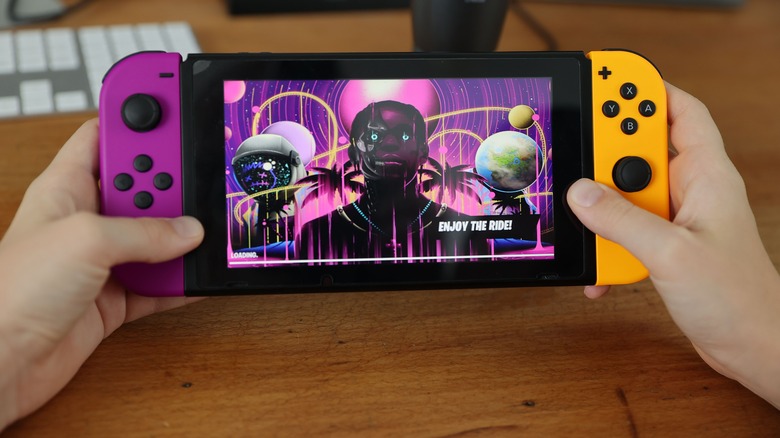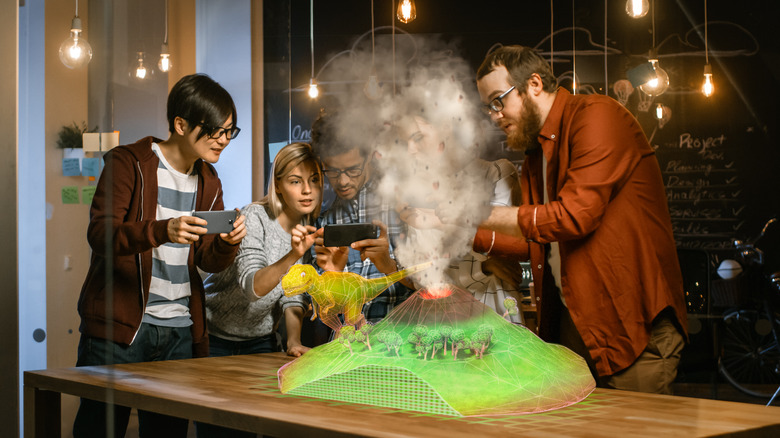The Metaverse Was Around Way Before You Realized
Mark Zuckerberg has had a challenging few weeks. The Zuck's face, rendered in less than remarkable graphics, has been the target of innumerable jokes since its release as the first public image of the metaverse — or, at least, the version of it conceived by Meta. The company hails the metaverse as something like Facebook 2.0, a completely immersive VR setting for socialization, collaboration, and the future of work. A consistent concern with the metaverse has been that it will just be Facebook with VR graphics. Debuting with a "Sims"-caliber render of the CEO's face has not quieted that concern.
The metaverse seems to be drawing more jeers and silence than buy-in. This naturally troubles the House of Zuck. Meta, the company incorporating all of Facebook's business ventures, is reportedly — and understandably — worried that it may have hung its name on a VR social network that is neither terribly social nor much good at virtualizing reality (via Twitter). If Meta is going to solve that problem, it might start by playing a little "Fortnite."
Fortnite, Minecraft, Second Life and the virtualization of culture
It might seem strange to mention a free-to-play video game in the same digital breath as something meant to reinvent the entire concept of interacting online. However, Nick Statt at Protocol rightly points out that "Fortnite" has hit goals Meta is nowhere near. As Statt notes, people are actually using "Fortnite" — and it's fun. That would be two up on Meta's version of the metaverse. "Fortnite" never claimed to be a revolution. As IGN has recorded, the battle royale hit was an 11th-hour creative pivot on a failing team-based shooter that stumbled sideways into global success. Now it's a thriving digital community with as much building as blasting.
It's the building aspect of "Fortnite" that shows a way forward for the metaverse. Spaces for global co-op creativity have existed for decades; to date, they've just been packaged as games. "Minecraft" beat "Fortnite" to the punch as the chosen setting for no-pressure collaboration and no-limits gaming by a solid six years. Similar communities have sprung up in "Roblox" and, to a degree, in Sony's "Dreams" with its so-called Dreamiverse.
That's just the young blood. Elder nerds will recall flocking to virtual settings with even less graphical pop than the waxy Styrofoam look over at Meta. The venerable "Second Life," launched in the grim darkness of 2003, is still standing amongst prettier descendants. Enormous creative and collaborative projects also take place in MMOs like "World of Warcraft" and "EVE Online." Browser-based oddities like "Kingdom of Loathing" still have their fans. ASCII stalwarts still populate MUDs and MUCKs. The list goes on. Believe it or not, every instance of virtualization here, from "Fortnite's" latest update to '90s-vintage text-based MUDs, has one quality in common that Meta has thus far missed.
Reality is abundant and low-value
As "Second Life" founder Philip Rosedale said of his creation in 2006, "[users] live here because they make friends here, and they can build things, and they can externalize their thoughts." The same can be said of MUDs and "Minecraft" and, yes, even "Fortnite" — the latter of which even added a mode entirely for socializing with others called Party Royale.
The lackluster metaverse reveal told a number of people, including its own investors (via investors.com), that Meta's product isn't there yet. Right now, the digital consensus regarding Meta's metaverse is that it looks like a VR version of the creation and collaboration everyone already does in the real world. The metaverse's core offer seems to be motion controls and immersive graphics. Reality already has those.
Historically, virtual communities succeed when they make offers beyond the real. Building in "Minecraft," character customization in "Second Life," "Fortnite's" seasonal madness: successful virtual communities do things the real world can't. Until Meta can put together an equally convincing offer of its own, skepticism about its future is likely to continue.


